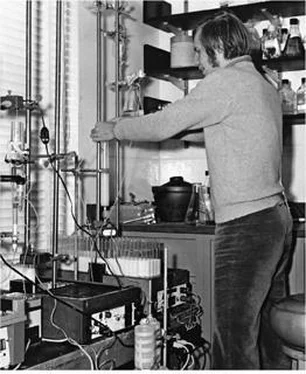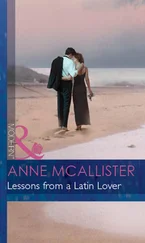James Watson - AVOID BORING PEOPLE - Lessons from a Life in Science
Здесь есть возможность читать онлайн «James Watson - AVOID BORING PEOPLE - Lessons from a Life in Science» весь текст электронной книги совершенно бесплатно (целиком полную версию без сокращений). В некоторых случаях можно слушать аудио, скачать через торрент в формате fb2 и присутствует краткое содержание. Жанр: Биографии и Мемуары. Описание произведения, (предисловие) а так же отзывы посетителей доступны на портале библиотеки ЛибКат.
- Название:AVOID BORING PEOPLE: Lessons from a Life in Science
- Автор:
- Жанр:
- Год:неизвестен
- ISBN:нет данных
- Рейтинг книги:5 / 5. Голосов: 1
-
Избранное:Добавить в избранное
- Отзывы:
-
Ваша оценка:
- 100
- 1
- 2
- 3
- 4
- 5
AVOID BORING PEOPLE: Lessons from a Life in Science: краткое содержание, описание и аннотация
Предлагаем к чтению аннотацию, описание, краткое содержание или предисловие (зависит от того, что написал сам автор книги «AVOID BORING PEOPLE: Lessons from a Life in Science»). Если вы не нашли необходимую информацию о книге — напишите в комментариях, мы постараемся отыскать её.
AVOID BORING PEOPLE: Lessons from a Life in Science — читать онлайн бесплатно полную книгу (весь текст) целиком
Ниже представлен текст книги, разбитый по страницам. Система сохранения места последней прочитанной страницы, позволяет с удобством читать онлайн бесплатно книгу «AVOID BORING PEOPLE: Lessons from a Life in Science», без необходимости каждый раз заново искать на чём Вы остановились. Поставьте закладку, и сможете в любой момент перейти на страницу, на которой закончили чтение.
Интервал:
Закладка:
The day before I took the train down to Washington, I walked south on the Cold Spring Harbor path bordering the mill ponds with the objective of reaching Oheka, the banker Otto Kahn's grand folly, whose immense chäteau-like outline could be seen from the sand spit. It lay beyond the Cold Spring Harbor railway station, from which a half-mile-long private road led across the grounds of an equally private eighteen-hole golf course to the many-turreted edifice, whose more than one hundred rooms made it the second largest private dwelling in the United States upon its completion in 1917. To enhance
the views from its yet-to-be-built windows, Kahn had brought in countless truckloads of sand upon which to set Oheka higher than other buildings on Long Island. His name was once legendary, with the financial power of the Kuhn-Loeb investment house that he ran with Jacob Schiff rivaling that of the House of Morgan. The Duke of Windsor spent a night in his grand home during his visit to America in the early 1920s. For more than twenty-five years, until his death in 1933, Kahn single-handedly covered the deficit of the Metropolitan Opera. But upon his death at the height of the Depression, the grand Oheka could find no master of sufficient means and was effectively abandoned until it was brought into service for war-related research.Now it was again vacant and unattended when I found an open door to the garden and wandered amid the cracking plaster of its once grand rooms, from whose windows I could make out the distant Connecticut shore. Walking back more slowly so I could munch upon the wild blueberries thriving on the underlying sandy soil, I mused whether Oheka would ever come back to life. Basically I didn't care since its world was one I had no need to enter. In Cold Spring Harbor the world of the gene already had its waterfront country club, admittedly without the eighteen holes of golf. And though we knew no imperious grandes dames to pay us visits, we had our own equivalent in eccentric theoretical physicists now manic about genes as well as atoms. And instead of seeking instructions from the skies, we had Max's beat to follow.
Remembered Lessons
1. Use first names as soon as possible
From our first meeting, Max Delbrück called me Jim and likewise wanted everyone to call him Max. Among the phage group gathered around him and Salva Luria, no one was given a professorial designation unless in jest or when someone's apparent pomposity needed to be put down. Titles, like neckties, imply differences in rank or age but science moves best when all are treated as equals.
2. Banal thoughts necessarily also
dominate clever minds
I used to frequently position myself at meals near Max Delbrück, hoping to profit from sharp dissections of new experiments or criticisms of badly thought out ideas. On some days, conversation sparkled, particularly when a visitor brought new facts or gossip about friends from his European past. More often, however, Max found it more compelling to discuss a student's new girlfriend or who had beaten whom in tennis that afternoon. I was discovering that most high-powered minds do not daily generate new ideas. Their brains mostly lie idle until the input of one or more new facts stimulates their neurons to resolve the conundrums that stump them.
3. Work on Sundays
A fixed sabbath from experiments does not jibe with the reality of the human brain. It rests effectively only when it does not want to work and is satisfied with what it has done. With few exceptions, the time frame of experiments cannot be predicted, and mental hibernation should not be preassigned to a regular day on the calendar. An unanswered experimental question is bound to remain in your consciousness. Work done on weekends, in fact, can be more fun than that done on weekdays. You would not be there unless your experiments were going well.
4. Exercise exorcises intellectual blahs
Experiments or ideas should drive you forward but never should be counted on to keep you on an even emotional keel. Success is gratifying and failure is not, but failure is a necessary feature of the work: if your experiments work all the time or your ideas never stop coming, you likely are aiming at goals not worth pursuing. To counter the ups and downs in neurotransmitter levels that are a natural part of a career such as science, incorporate plenty of physical exertion to get outside your head regularly. Following Max Delbrück's example, I began running several times daily to and from the sand spit. Tennis, however, was my favorite nonscientific pastime, particularly when a good player gave me a match that made me work. Then I felt good even though I lost most games. The relaxation that comes from strenuous exercise most likely reflects the physical-stress-mediated release of ß-endorphins, the opiate-like human molecules whose expression is evolution's way of ensuring that humans engage in tasks that promote our long-term well-being.
5. Late summer experiments go against human nature
During the euphoria that comes with long June days, both hard work and hard play are possible. A full day of experiments in no way precludes early evening softball or volleyball games. But by early August, darkness creeps up on mealtime and yellow leaves begin to hint that fall is not that far away. So with the outside water temperature still rising to its early September highs, afternoon beach excursions make more sense than experiments easily put off to the next morning. The last weeks of August are usually best suited for vacations to distant places attractive enough that thoughts of science will fade no more than two or three days after arrival. Several-week vacations never hurt if you can afford them. And on beach walks toward the end of your vacation, your brain may even be sufficiently refreshed to mull over potential experiments you can undertake when back on home ground.
5. MANNERS PASSED ON TO AN ASPIRING YOUNG SCIENTIST
UPON my return to the less intense intellectual atmosphere of IU in the fall of 1948, I began following up Luria's observations from 1941 that phages suspended in simple salt solutions are much more sensitive to inactivation by X-rays than those suspended in nutrient-rich beef broth solutions. Unclear was whether phages indirectly killed by exposure to reactive molecules generated by X-rays striking surrounding water molecules possessed novel properties not found in phages killed by “direct” X-ray hits. Luria's earlier inactivation curves suggested that several indirect hits were required to kill a phage. In contrast, direct killing was long thought to result from a single ionization event.
While enjoying the first experiments of my own devising, I began anticipating the intellectual excitement that was to come from the impending mid-October weekend visit of Leo Szilard. Just turned fifty, Szilard was then a professor of biophysics and sociology at the University of Chicago, and was driven down by his much younger collaborator, Aaron Novick, also a participant in the 1947 Cold Spring Harbor phage course. Leo had recently received a small Rockefeller Foundation grant to support midwestern genetics meetings of his choosing. The barely five-foot-six Szilard invariably wore a tie with his suit, never trying to hide the potbelly that reflected his fondness for food and aversion to exercise.
Born in Budapest in 1898 to prosperous parents, the extraordinarily intelligent Leo became a physicist in Berlin, where he knew Albert Einstein well and taught modern physics between 1925 and 1932 with Erwin Schrödinger. As a Jew, he had the good sense to flee Berlin the month Hitler assumed power. Soon he was in England, where the fast flow of his ideas was not so well suited to the more stately flow of English science. He seldom spent more than a few months in any one location, and so there never seemed to be enough time for his theoretical hunches to be experimentally tested. Moreover, his desire to seek patents for ideas that had commercial application made his English academic hosts think he valued money more than ideas. Here they were 100 percent wrong. It was only thanks to money from his German patents, one with Einstein, that Leo could afford to stay in science.
Читать дальшеИнтервал:
Закладка:
Похожие книги на «AVOID BORING PEOPLE: Lessons from a Life in Science»
Представляем Вашему вниманию похожие книги на «AVOID BORING PEOPLE: Lessons from a Life in Science» списком для выбора. Мы отобрали схожую по названию и смыслу литературу в надежде предоставить читателям больше вариантов отыскать новые, интересные, ещё непрочитанные произведения.
Обсуждение, отзывы о книге «AVOID BORING PEOPLE: Lessons from a Life in Science» и просто собственные мнения читателей. Оставьте ваши комментарии, напишите, что Вы думаете о произведении, его смысле или главных героях. Укажите что конкретно понравилось, а что нет, и почему Вы так считаете.












